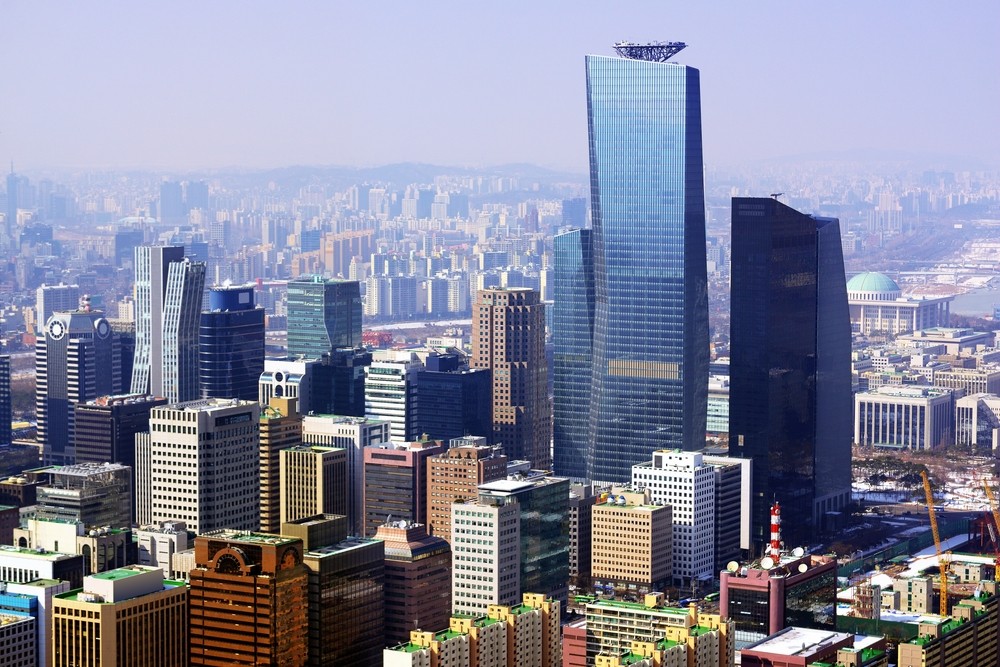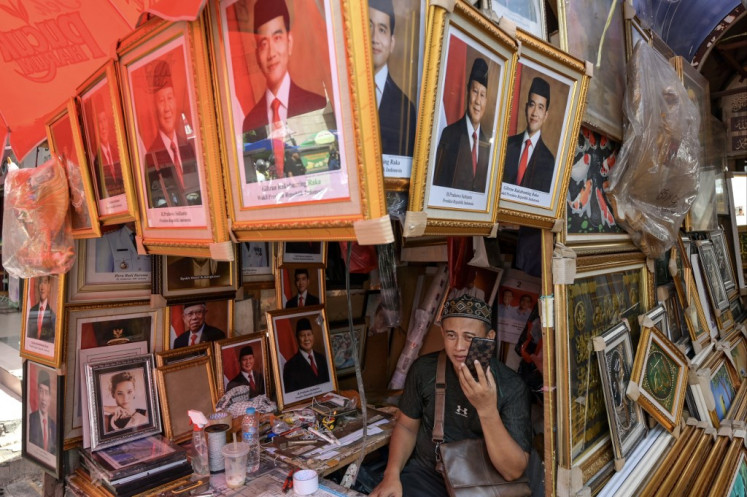How South Korean investors help crank Indonesia 'ease of doing business'
Indonesia is ahead of China at 78, but behind Vietnam at 68, Thailand at 26 and Malaysia at 24.
Change Size
 Downtown cityscape of Seoul, South Korea on a smoggy day. (Shutterstock/File)
Downtown cityscape of Seoul, South Korea on a smoggy day. (Shutterstock/File)
I
ndonesia may have significantly moved up the ranking of the World Bank’s Ease Of Doing Business Index these last few years under President Joko “Jokowi” Widodo, but he wants more. And who better to turn to than international investors who have the world view of where best to put their money.
A dialogue between South Korean investors on the one side, and Indonesian business executives and government officials on the other, in Jakarta last week revealed ample room for improvement.
One startling revelation, for example, was that Indonesia is missing out on South Korean small and medium enterprises relocating out of China for investment opportunities elsewhere. They go to Vietnam. Other problems emerged during the closed-door dialogue jointly held by the Korea International Trade Association (KITA) Jakarta and the Indonesian Chamber of Commerce and Industry (Kadin).
Away from the prying ears of journalists, South Korean businesspeople openly discussed the problems found on the ground before representatives of the trade, industry and foreign affairs ministries, as well as the investment coordinating agency.
It is no secret that sometimes it takes foreign investors to get any response from the Indonesian government on problems that are commonly found in doing business in Indonesia. While Kadin and the Association of Indonesian Employers (APINDO) are doing their share of lobbying the government to improve the business climate, they welcome a contributing push from foreign investors.
“Some of your problems are our problems,” Kadin vice chairperson Shinta Kamdani said opening the dialogue attended by representatives of 10 South Korean companies with large operations in Indonesia.
Indonesia currently ranks 72nd out of 190 countries surveyed by the World Bank for its Ease of Doing Business Index. This is a huge jump from 91st in 2017, reflecting the success of more than a dozen economic reform packages issued since Jokowi took over the presidency in October 2014.
Indonesia is ahead of China at 78, but behind Vietnam at 68, Thailand at 26 and Malaysia at 24.
Indonesia could attract more investors if it improved the business environment. According to the World Bank’s 2018 report, Indonesia scored highly on issues such as getting electricity, getting credit, protecting minority investors and resolving insolvency, but scored poorly on starting a business, dealing with construction permits, trading across borders, paying taxes and enforcing contracts.
The President has been breathing down his administration’s neck to meet his personal goal of ranking 40th by 2019.
While the World Bank report provides some clues about where Indonesia needs to improve, there is nothing like hearing straight from the horse’s mouth. Last week’s dialogue gave a rare opportunity for Indonesian regulators to hear complaints from the CEOs of top South Korean companies.
Unlike during the Soeharto years, government officials no longer try to defend themselves when criticized. Instead, during the dialogue with South Korean investors, they tried to explain the complex regulations and took notes on problems that require solutions higher up. One businessman complained about the discriminatory treatment Korean companies face on import tariffs while Japanese companies are exempted. As it turned out, Japan enjoys preferential tariff treatment under the bilateral free trade agreement signed with Indonesia, something that eludes South Korea. The suggested solution is to bring this up at the next general review of the Korea-ASEAN Free Trade Agreement.
Another complained about the mandatory use of Indonesian-flagged vessels for transporting coal and palm oil (cabotage rule) while Indonesia does not have enough special vessels for the current and future volume of exports of these two important export commodities, not only to South Korea but also other markets.
A common problem is the poor coordination between different government agencies, and this is felt more every time regulations change, with one agency applying the new regulation while others would still enforce the old one.
A number of South Korean investors also complained about difficulties and confusion in using the online single submission system for licensing, launched last month.
One would have assumed that South Korean investors have the least problems given their massive and visible presence in Indonesia.
Almost every other mobile phone sold in Indonesia is a Samsung, more urban Indonesians shop at Lotte market, housewives now watch K-drama and youngsters tune in to K-pop. South Korea is becoming a popular tourist destination for the burgeoning Indonesian middle class with a growing appetite for foreign vacations. Korean restaurants are competing head-to-head with Chinese and Japanese restaurants in malls in Jakarta. Very soon, more Indonesians will be driving Hyundai, which announced last week its plan to set up a factory in Indonesia.
There could be a greater South Korean presence in Indonesia if the government addressed problems raised during the discussion. There is also commitment from the two countries’ leaders. The KITA-Kadin dialogue is held a month before Jokowi goes to South Korea, to return the visit of South Korean President Moon Jae-in to Indonesia last November.
In Jakarta, the two leaders agreed to upgrade the status of relations to “special strategic partnership”.
Ten months is not long to expect any big improvement since their last encounter, but at least they should be aware that their businesspeople are addressing problems to help improve Indonesia’s business climate and make this relationship truly special.
***
The writer, a senior journalist at The Jakarta Post, had permission to write this piece from organizers of the above closed dialogue.










